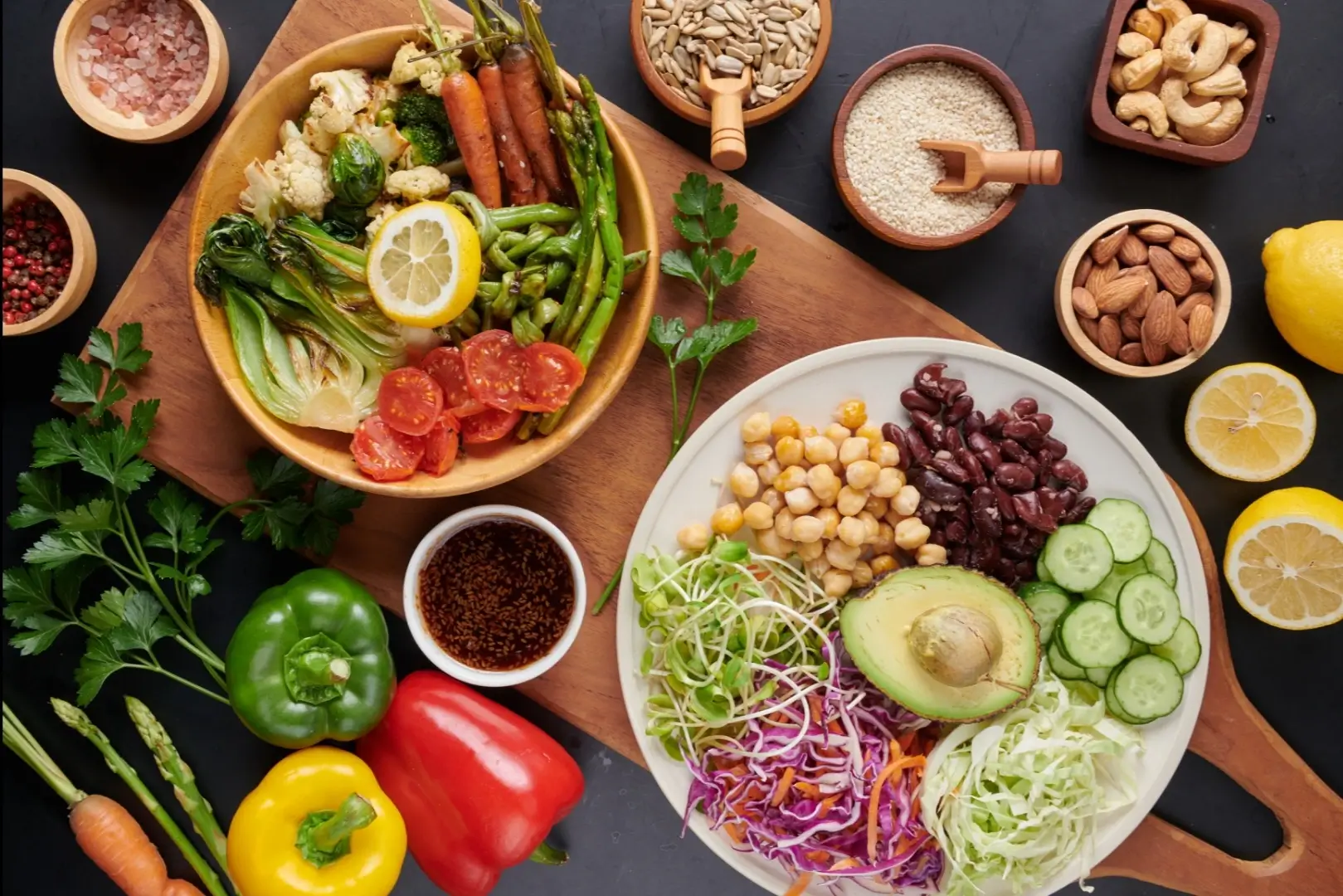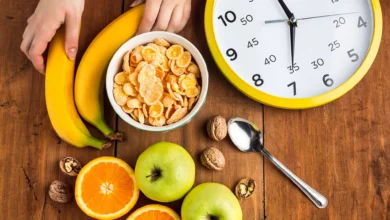
Diabetes is a common disease, and if left untreated it has many complications such as: kidney damage, neuropathy, heart disease, and retinal damage. Therefore, it is important to control blood sugar through drug treatment and a healthy diet for diabetics.
What is diabetes?
Diabetes is a chronic disease that occurs when:
- The pancreas does not produce enough insulin.
- The pancreas produces a sufficient amount of insulin, but the body cannot use it effectively, and this is known as insulin resistance.
What is the normal level of glucose in the blood?
- Normal values for fasting blood glucose range between 70 mg/dL (3.9 mmol/L) and 100 mg/dL (5.6 mmol/L).
- If fasting blood glucose is between 100 to 125 mg/dL (5.6 to 6.9 mmol/L), prediabetes.
- If the fasting blood sugar is 126 mg/dL (7 mmol/L) or higher on two separate tests, the condition is diagnosed as diabetes.
What are the symptoms of diabetes and when do they appear?
Symptoms of high blood sugar appear when its level exceeds 180 to 200 milligrams per deciliter (mg/dL), or 10 to 11.1 millimoles per liter (mmol/L).
Some patients with type 2 diabetes do not show any symptoms for a long time despite their high blood sugar levels, and the severity of diabetes symptoms increases the longer the blood sugar level remains high.
What are the early symptoms of diabetes?
Knowing the early symptoms of high blood sugar helps in its early diagnosis and treatment. The most important of these symptoms are:
What are advanced signs and symptoms?
- Feeling lethargic and tired.
- Frequent urination and frequent thirst.
- Blurred vision.
These symptoms appear if blood sugar is not controlled for a long time, where what is called ketoacidosis occurs . Its symptoms include:
- Dry mouth
- Breath smells fruity
- shortness of breath.
- Abdominal pain
- Feeling nauseous and vomiting.
- Confusion and loss of consciousness.
read more: All you need to know about type 2 diabetes
The best healthy diet for diabetics
Following a diabetic diet means two things:
1_ Eat healthy food.
2_ Eat regularly and at specific times.
Regulating meal times helps regulate the consumption of insulin secreted by the body, or obtained by taking medication.
A nutritionist may help you determine the best diet plan for diabetics , so that it suits your health condition and at the same time is in line with your lifestyle, physical activity, and preferences. He may help you determine the number of meals and the amount of food in each meal, but in general we will talk about the recommended foods. And foods that you should avoid.
read more: Treatment of diabetes
What foods are suitable for healthy diet for diabetics?
healthy carbohydrates
There are two types of carbohydrates:
1_ Simple carbohydrates: They are sugars.
2_ Complex carbohydrates: they are starches.
During digestion, sugars and starches break down into glucose . In a healthy diet, foods that are a source of healthy carbohydrates should be eaten, such as:
- fruits and vegetables.
- Low-fat dairy products.
- Legumes such as beans and peas.
- Whole grains.
Foods rich in fiber
Fiber means all plant components that the body cannot digest or absorb. Fiber is useful in controlling blood glucose levels, and it also helps facilitate your digestion process, so it is a good choice when following a diabetic diet . Foods rich in fiber include the following:
- fruits and vegetables.
- Nuts.
- Legumes and whole grains.
fish
Fish, such as salmon, mackerel, tuna and sardines, are a great source of omega-3 fatty acids, which have many health benefits such as preventing heart disease.
You should avoid eating fried fish because it contains high levels of fat, and cod because it contains high levels of mercury.
good fats
These are monounsaturated and polyunsaturated fats, and they contribute to lowering cholesterol levels in the body, but do not overeat them, because all fats contain calories. You can talk to your doctor to determine the appropriate portion of beneficial fats for you.
Sources of healthy fats
Healthy fats are found in:
- Olive oil, peanut oil, canola oil.
- Nuts.
- Avocado fruit.
What foods should a diabetic avoid?
Diabetes increases the risk of stroke and heart disease, such as atherosclerosis and blockage of the arteries, so you must adhere to a healthy diet to reduce this risk, and stay away from foods that increase the risk factor, such as:
- Saturated fats are found in fatty milk derivatives and fatty animal proteins, such as beef, sausages, and hot dogs. We also advise you, dear reader, to reduce your intake of coconut oil and palm seeds.
You should avoid eating trans fats, which are found in margarine and ready-made bakery mixes. You should reduce your intake of sources of cholesterol , such as fatty animal proteins, liver, other offal meats, fatty milk derivatives, and egg yolks. You can eat a maximum of 200 mg of cholesterol per day.
- Sodium Don’t eat more than 2,300 mg of sodium per day, and your doctor may suggest eating less if you have high blood pressure.
Conclusion:
Following a diabetic diet , in addition to taking medication, helps control blood sugar levels within the normal range, reduces the possibility of diabetes complications, and makes you enjoy a healthy and energetic life. Do not hesitate to visit your doctor to determine the appropriate dietary pattern for you.
references
https://www.mayoclinic.org/diseases-conditions/hyperglycemia/symptoms-causes/syc-20373631
https://www.mayoclinic.org/ar/diseases-conditions/diabetes/in-depth/diabetes-diet/art-20044295
 Low-carb diet for type 2 diabetes
Low-carb diet for type 2 diabetes Low carbs diet
Low carbs diet Emotional eating, what are its causes and how to get rid of it
Emotional eating, what are its causes and how to get rid of it Intermittent fasting
Intermittent fasting